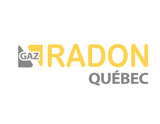1- If my neighbor has no radon, there is no danger for my house?
Fake! It has happened before that in townhouses units in the center had excess radon or even that only one unit in the row had it but the others did not.
2- All detectors are equal regardless of the technology!
Fake! Technologies vary, such as those with activated carbon which are subject to the absorption and desorbiton of radon in addition to being able to be distorted by excessive humidity. Alpha trace and ionization and electret chamber detectors are more accurate and reliable for both short-term and long-term testing.
3- Only a radon test can provide me with information on whether there is an excessive amount of radon is present in my house?
True! Radon is colorless, odorless and tasteless. Only a test with an approved radon detector can determine its presence.
4- My house is recent so radon cannot be present!
Fake! Recent studies show the opposite. The 2010 National Building Code prescribes measures to prevent radon from entering the building. But it seems to be ineffective. Buildings from the 1970s have about an 11% chance of having a radon level exceeding the Canadian standard, while it is 21% for more recent buildings.
5- I bought a new house and I tested immediately radon gas when I took possession. The radon was a little bit under 200 bq/m3. I can sleep on my 2 ears I would never have problems.
Fake! Studies show that new buildings have a radon level that increases after 2 to 3 years. It is recommended to do a new radon test after 3 years as a precautionary measure.
6- I have just had an air exchanger installed so I am safe. Nope?
This is a trick question! The air exchanger can effectively reduce the radon level in the building. But only a test can demonstrate whether this addition is effective or not.
7- If my house has a radon level that exceeds 200 bq/m3, I will definitely get lung cancer!
Fake! One thing is certain, the higher the level, the greater the risks. It's like playing Russian roulette. It all depends on the amount of radon present, the duration of exposure. Health Canada strongly recommends implementing mitigation measures to protect you and your family from that silent killer.
8- Radon is a heavy gas. I only spend a short time in the basement, less than 4 hours a day. My heating system is forced air, which is better for your health.
Fake! Radon is indeed a heavy gas. The forced air heating system mixes indoor air throughout the building diluting and distributing radon throughout. A radon test is strongly recommended.
9- The Quebec Lung Association allows you to search by postal code on its site. I can tell if my house has radon from this search!
Fake! Yes, the APQ offers this search service. However, this research cannot target a particular house but identifies the incidence of radon in a neighborhood only. Only a radon test can inform you adequately.
10- I had it tested and my house has radon at 800 bq/m3. I couldn't sell it anymore and I'm going to lose a lot.
Fake! Every problem has a solution. In general, the costs of mitigation are much lower than a problem of foundation drain or instability of the foundations. More and more people are aware of the dangers posed by radon. Correcting will make the sale easier because buyers will be aware and will appreciate that the seller has made the right decisions to ensure a safe and healthy living environment for everyone.
11- My neighbor had a radon test that exceeded Health Canada's standard. He is not obliged to take mitigation measures?
True! As surprising as it may seem, your neighbor is not obliged to do anything. In fact, only 29% of owners who, after learning of an excessive radon level, take action and correct the situation. If the owner out his house in the market this will be an unfavorable element for him. A choice that he is free to make and for which he will bear the consequences.

